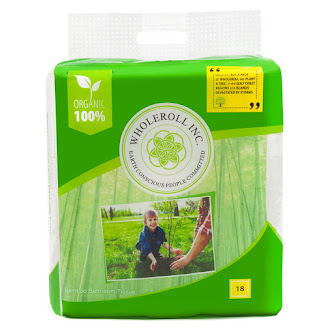Our choices in life affect our environment and
other living creatures in the ecosystem. Fortunately, we have the option to
make the right decisions that will protect our planet and everything that is
connected within. Here are some easy tips for living a sustainable lifestyle at
home.
Find some
interesting new ways of reusing items
More than likely, you have tossed a couple of
items out after you were done with it. It perhaps could have been a torn
curtain, a metal can, a plastic bag, old electronics and many others. Believe it
or not, most of these items can be repurposed and reused. You can reuse the old
clothing to make decorative crafts, you can also donate old magazines and books
as well as take old furniture to repurpose and make outdoor furniture or they
may have the potential to become antiques.
Plant a
garden in the backyard
Start making fresh herbs and vegetables by
planting a garden in your backyard or on the balcony. It does not have to be a
large garden. You can also use containers to plant vegetables and herbs when
you do not have a garden. This is ideal because planting a garden and eating
fresh will lower your carbon footprint.
Look
for plastic alternatives
Yes, the plastic grocery bag has just about
had its day. Instead of using plastic shopping bags, consider buying woven or
canvas shopping bags. These types of bags help to eliminate the increasing the
amount of plastic waste in the landfills. Canvas and woven bags can be
repeatedly used and washed unlike plastic bags.
These bags save you money and because they are often spacious will save
you time because you can put twice as much in them as you can plastic bags.
Using plastic will also decrease the death rates of many sea animals that are
lost due to the ingestion of these plastic bags.
Choose renewable energy
Instead of companies using fossil fuels they
must transition to renewable energy. As a
consumer, you have the buying power to support companies that incorporate
sustainability practices. Look for companies that producing renewable energy
from such sources as solar and wind. In the
home you too can personally install solar water heaters, and other energy
efficient appliances to help cut back on products that create energies made
from fossil fuels. In the same line, conserve energy by turning off equipment
and lighting when you do not need it and change your bulbs to energy saving
alternatives.
Boycott products that endanger the
environment
Yes, there
are companies that completely disregard the environment and only put profits
first. They will use materials such as skin and horns sourced from wildlife or will
destroy massive forests for the wood or palm oil of trees without planting replacements.
Look for products made from sustainable sources such a bamboo and fish species
that are plentiful and stand up to companies that violate the earth and its
ecosystem.
Finally, take
a look at product labels before purchasing your goods. Buy organic products whenever
possible. Moreover, support your local community and look for locally
manufactured and home grown products. Sourcing locally has little impact on
your carbon footprint because the transporting of the goods is confined to very
small distances.
You have a
voice in who you want to purchase from.
Stand up to those who destroy forests and leave a heavy carbon footprint
or disregard wildlife. Sometimes the only way to get the manufacturers
attention is by tapping into their bottom line.

















